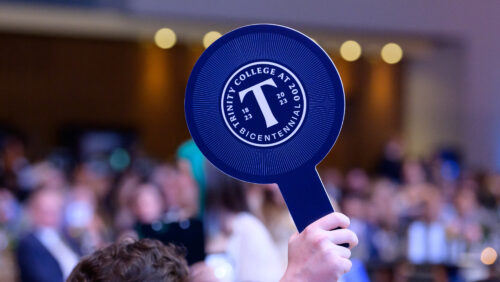On a rainy day in the spring of 1991, prospective student Mary Beth Jordan ’95 felt right at home on a campus tour. Now on the cusp of her 25th Reunion, Mary Beth reflects back on her time as a student. She treasured the small classes at Trinity, and relished both the quality and balance of her education. “Trinity still is important to me 25 years later. I’m grateful for all that I learned and the friendships formed there.”
Mary Beth and her husband, Ben, updated their will a couple of years ago and decided to include Trinity as a beneficiary, alongside a number of other organizations they both care deeply about. Serving on the board of an environmental nonprofit, they have seen bequests come to fruition and witnessed their impact firsthand. “These gifts become part of the donor’s legacy and help the recipient organization achieve even greater results.”
A charitable bequest is a method of giving that enables you to achieve your estate planning goals and benefit Trinity College. An estate gift is easy to create and allows for flexibility if the assets are needed during your lifetime. An alternative to a bequest is to designate Trinity College as the beneficiary of your retirement assets. This gift allows you to control the transfer of these assets at your death without changing your will or living trust. All you need to do is request and complete a new beneficiary designation form from your plan administrator.
“We hope that we have many years ahead of us, and plan to increase the bequest amount perhaps when our boys are older and again when we are closer to retirement. So, we view it as a placeholder for the future, but also a statement about what’s important to us today.”



